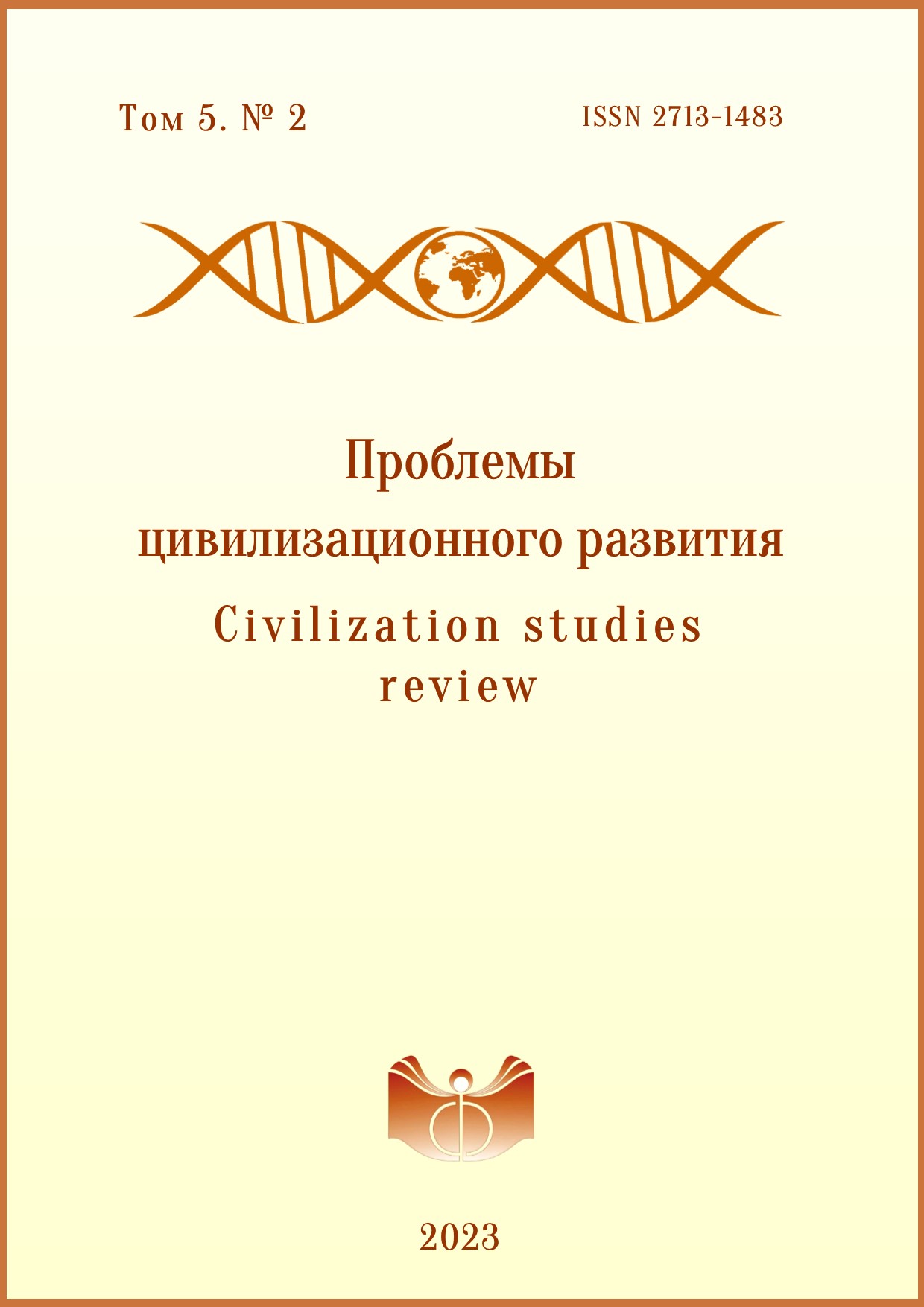Non-covetousness as the most important value of national culture
DOI:
https://doi.org/10.21146/2713-1483-2023-5-2-20-39Keywords:
Russia, civilization, Westernism, pochvenism, non-possessiveness, Josephism, Joseph Volotsky, Nil Sorsky.Abstract
The article is devoted to the struggle of two opposing worldviews and the corresponding trends in the political, sociocultural and spiritual life of Russia – non-acquisitiveness and Josephism. This confrontation, originating at the end of the 15th – beginning of the 16th centuries is reproduced in one way or another throughout the entire history of the country. A detailed review of the basic ideas concerning these tendencies, forms of their manifestation in different historical periods are presented; the approaches of domestic researchers to this topic and various assessments of the contribution of representatives of the non-possessive and Josephite traditions to the formation of Russian culture and the state are considered.
The authors substantiate the fruitfulness of non-acquisitive moral, value, social and political ideas and attitudes. It is confirmed, on the one hand, by the negative results of the victory of the Josephite direction already in the 16th century in all the main spheres of the country’s life; on the other hand, by the continuity of the ideas and ideals of the non-possessors, their reflection and refraction in the scientific, philosophical, social and political thought of Russia, as well as in art throughout the entire subsequent historical period up to the present. It is noted that in the Western tradition there are also similar attitudes, although in a different terminology and based on other sources. The perspective and timeliness of a return to the ideas and values of non-acquisitiveness is emphasized, especially at the current turning point in historical development, which can become an important factor in the formation of a new civilizational model that replaces the current, largely dead-end technogenic-consumer civilization.
The article is devoted to the struggle of two opposing worldviews and the corresponding trends in the political, sociocultural and spiritual life of Russia – non-acquisitiveness and Josephism. This confrontation, originating at the end of the 15th – beginning of the 16th centuries is reproduced in one way or another throughout the entire history of the country. A detailed review of the basic ideas concerning these tendencies, forms of their manifestation in different historical periods are presented; the approaches of domestic researchers to this topic and various assessments of the contribution of representatives of the non-possessive and Josephite traditions to the formation of Russian culture and the state are considered.
The authors substantiate the fruitfulness of non-acquisitive moral, value, social and political ideas and attitudes. It is confirmed, on the one hand, by the negative results of the victory of the Josephite direction already in the 16th century in all the main spheres of the country’s life; on the other hand, by the continuity of the ideas and ideals of the non-possessors, their reflection and refraction in the scientific, philosophical, social and political thought of Russia, as well as in art throughout the entire subsequent historical period up to the present. It is noted that in the Western tradition there are also similar attitudes, although in a different terminology and based on other sources. The perspective and timeliness of a return to the ideas and values of non-acquisitiveness is emphasized, especially at the current turning point in historical development, which can become an important factor in the formation of a new civilizational model that replaces the current, largely dead-end technogenic-consumer civilization.

